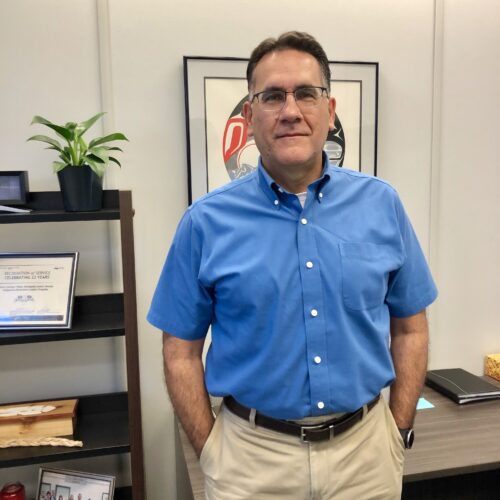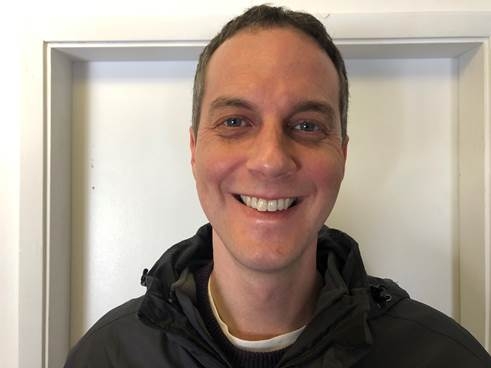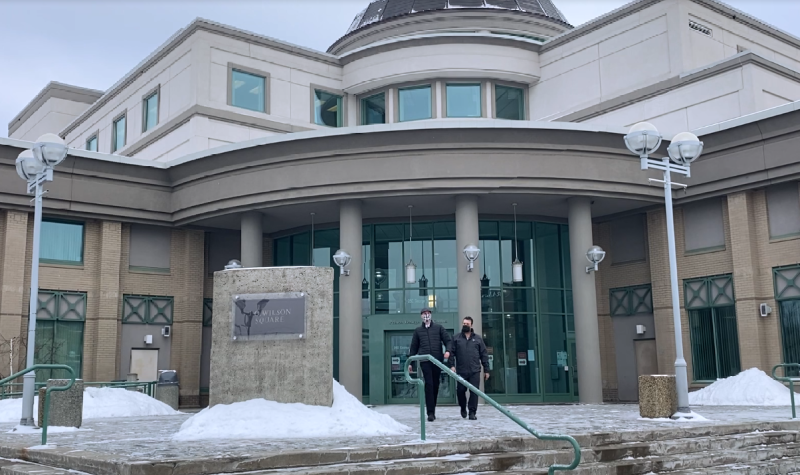Despite the ongoing work of advocates and community members, the over representation of Indigenous peoples in correctional facilities in British Columbia is a deepening problem. According to certain advocacy groups based in Prince George, more than 65% of the inmates at the Prince George Correctional Centre identify as Aboriginal. This is despite the fact that Indigenous peoples make up approximately 15% of the population of Prince George according to the 2016 Census. As reported by the BC First Nations Justice Council, the percentage of people currently incarcerated in BC who identify as Indigenous has increased in the past decade.

Bill Pavich is the new ED of the PGUAJS, which has been operating since 1997. Photo courtesy of the PGUAJS.
Organizations such as the Prince George Urban Aboriginal Justice Society (PGUAJS) and the Indigenous Justice Centre (IJC) of Prince George work to support their clients and community members who identify as Indigenous to navigate encounters with the police and judicial system. Though the avenues they provide are different, both organizations seek to address the service gaps and systemic shortcomings that can lead to more negative outcomes for Indigenous peoples. “Although we’ve made some commitments as a Canadian peoples, I still think we’re falling short in lowering those numbers in our institutions” says Bill Pavich, Executive Director of the PGUAJS. Initiatives like restorative justice have been around for at least 40 years but Pavich says that public awareness is still limited.
Liam Cooper, staff lawyer at the Indigenous Justice Centre in Prince George which opened in February 2020, says that he feels “very enfranchised in this new position and in this new centre to be able to just open my door and extend my hand to simply assist people”. The absence of bureaucratic requirements to access his services and the fact that he is able to focus entirely on the Centre allows for a more holistic, wrap-around approach to problem-solving for clients who might otherwise fall through the cracks of service provision.

Liam Cooper has been a staff lawyer at the PG IJC since it opened in 2020. Photo courtesy of the BC First Nations Council.
Both Cooper and Pavich point to the positive impacts of the Gladue Decision of 1999. The Gladue Provisions require a judge to consider all other options before incarceration for Indigenous peoples and make space for personal histories to factor in to judicial proceedings. But they can only be called on when a person has already been convicted or plead guilty to a charge and, as Pavich and Cooper both stated, once you are in the system, it can be difficult to get out of it. Diversion through restorative justice programs, healing circles, Elder support and leadership, and other initiatives for youth and adults can provide different avenues to justice for both victims and perpetrators.
Seeking out a root cause of the over representation can be challenging, given the complex and compounding factors that lead Indigenous peoples into conflict with the system. The material constraints of poverty, housing insecurity, food and water insecurity, as well as inter-generational trauma due to colonization and cultural dislocation can have far reaching impacts. As Pavich says, when these stressors are present, “I don’t think you’re too worried about how you’re going to function in society”. In addition, issues around discretionary policing, systemic racism with the RCMP, and a lack of cultural awareness among officers can make the consequences of a police-involved encounter much more severe for Indigenous peoples.
While advocates and activists call for an overhaul of the systems that perpetuate mass incarceration of Indigenous peoples across Canada, particularly in the face of worsening circumstances, Pavich says that locally, “I think the key still is to stay positive and at the same time, compassionate”.
For more information on the Prince George Urban Aboriginal Justice Society, visit pguajs.ca.
For more information on the Indigenous Justice Centre and the BC First Nations Justice Council, visit bcfnjc.com.
Listen to the interview with Bill Pavich, Executive Director of the Prince George Urban Aboriginal Justice Society on CFUR-FM:
Listen to the interview with Liam Cooper, staff lawyer at the Indigenous Justice Centre in Prince George on CFUR-FM:


